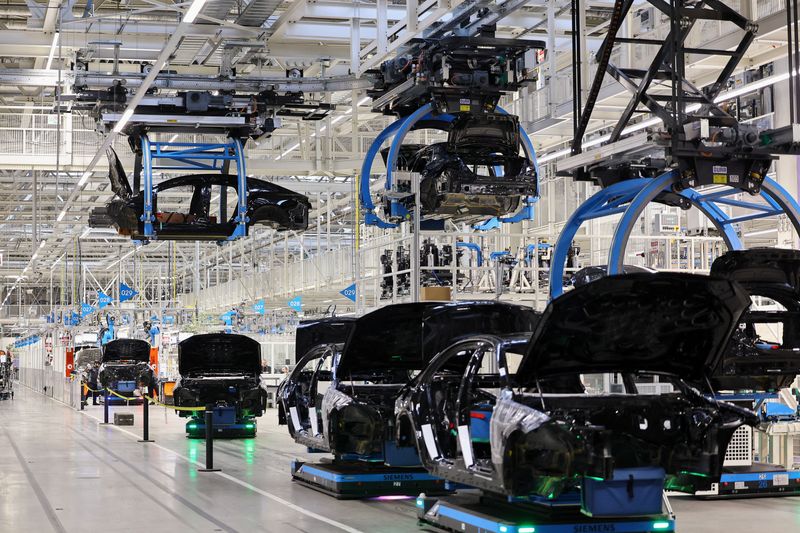German economy unexpectedly grows, avoiding recession
2024.10.30 06:25
By Maria Martinez
BERLIN (Reuters) -Germany’s gross domestic product unexpectedly increased in the third quarter, driven by government and household spending, skirting a recession amid fears that Europe’s biggest economy would contract for a second consecutive quarter.
The economy expanded by 0.2% in the third quarter from the previous three months, preliminary data from the statistics office showed on Wednesday.
Analysts polled by Reuters had forecast a 0.1% quarter-on-quarter decrease in adjusted terms.
“Under the weight of many structural weaknesses, the economy is sending out a sign of life,” said Alexander Krueger, chief economist at Hauck Aufhaeuser Lampe. “This is thanks to the consumers, who have let their guard down a little.”
The statistics office also revised data for the second quarter to a 0.3% quarter-on-quarter contraction, from the 0.1% decline previously reported.
Despite the positive news, economic weakness is expected to stay as the country struggles with high energy costs, subdued global demand for its exports, and rising competition.
“The growth outlook is somewhere between stagnation and a snail’s pace,” Krueger said.
Separately, the federal labour office said the number of people out of work in Germany rose more than expected in October.
The office said the number of unemployed increased by 27,000 in seasonally adjusted terms to 2.86 million. Analysts polled by Reuters had expected an increase of 15,000.
The seasonally adjusted jobless rate was stable at 6.1%.
“The autumn upturn in the labour market has largely failed to materialise this year,” said labour office head Andrea Nahles.

Inflation rose in four important German states in October, preliminary data showed on Wednesday, suggesting the national rate could also increase.
Economists polled by Reuters forecast a harmonised national inflation rate of 2.1% in October, up from 1.8% the previous month. National figures will be released later on Wednesday.








